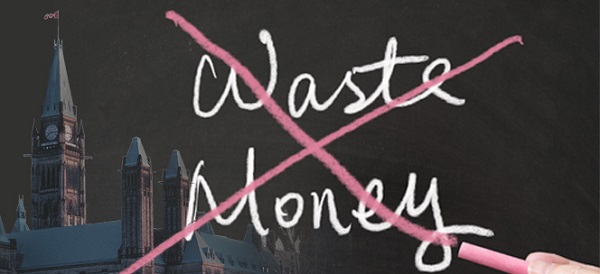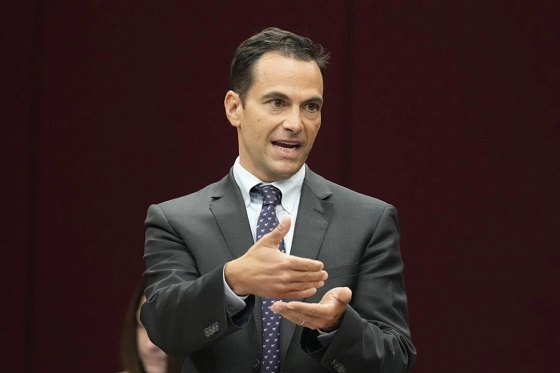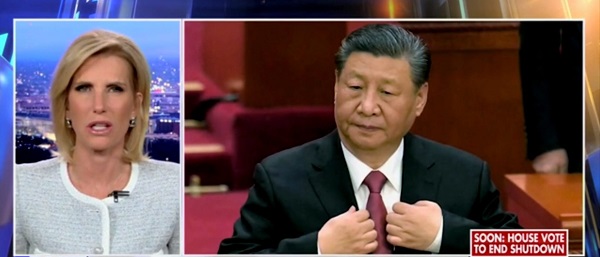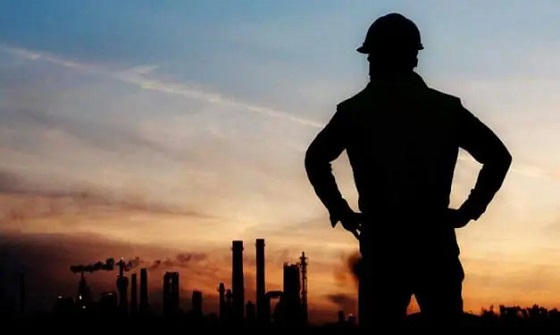Business
Trudeau government spends millions producing podcasts

From the Canadian Taxpayers Federation
By Ryan Thorpe
Take the Eh Sayers Podcast from Statistics Canada, which has 21 episodes since January 2021. Episode topics have ranged from gender identity to climate change and misinformation to systemic racism.
The podcast has racked up 229 “estimated” subscribers, according to records.
To date, the podcast has cost $971,417.
Dozens of federal departments and agencies have launched podcasts in recent years, with the cost to taxpayers rising to millions of dollars once salary expenses are factored in.
That’s according to government documents, as well as access-to-information records, obtained by the Canadian Taxpayers Federation.
“Canadians need the government delivering passports, not podcasts,” said Franco Terrazzano, CTF Federal Director. “Can anyone explain why taxpayers are paying for government bureaucrats to spend a bunch of money on podcasts nobody listens to?
“This isn’t providing taxpayers value for money, these podcasts are make-work projects for government bureaucrats we don’t need.”
Take the Eh Sayers Podcast from Statistics Canada, which has 21 episodes since January 2021. Episode topics have ranged from gender identity to climate change and misinformation to systemic racism.
The podcast has racked up 229 “estimated” subscribers, according to records.
To date, the podcast has cost $971,417, meaning taxpayers are on the hook for $4,241 for every subscriber. The podcast averages 1,414 downloads per episode and has 39 reviews on Apple.
There have been anywhere from three to five full-time Statistics Canada employees assigned to the podcast, according to the records.
An August 2023 episode on gender identity begins with a “drag story time” reading from “drag king” Cyril Cinder.
During a December 2023 episode on misinformation, the host and guest talk about the problem with giving “both sides of an issue equal time or consideration.”
An earlier episode, from December 2021, focuses on “the arts and crafts movement across Canada, its renaissance and its necessity.”
“If Statistics Canada bureaucrats want to produce podcasts on gender ideology, climate change or misinformation they can fill their boots on their own time with their own dime,” Terrazzano said. “If you want proof there are too many bureaucrats in Ottawa with too much time and tax dollars on their hands, look no further than these podcasts.”
Or take CCI and CHIN: In Our Words, from Canadian Heritage, that seeks to “preserve” the history of the department “through interviews with current and former staff members.”
Between September 2019 and September 2021, when it was discontinued, the podcast released seven episodes. It has 17 reviews on Apple.
That podcast cost taxpayers $155,736, which works out to a cost of more than $22,000 per episode.
The costs included $9,000 for “podcast training and consulting,” $2,000 for equipment and $115,000 in salary expenses for the full-time staff assigned to it.
The First Sixteen podcast, from Agriculture and Agri-Food Canada, explores the “freshest ideas in agriculture and food.” It racked up $30,000 in expenses, on top of the salary costs for the full-time employee who works on it.
Healthy Canadians podcast, from the Public Health Agency of Canada, has four full-time employees assigned to it.
The average compensation for each full-time federal employee is $125,300 when pay, pension, paid time off, shift premiums and other benefits are considered, according to the Parliamentary Budget Officer.
Healthy Canadians also racked up $67,000 in expenses (over and above salary costs), including $34,000 spent on “podcast strategy, editorial planning and employee training.”
Business Unusual, a pandemic-era podcast produced by Immigration, Refugees and Citizenship Canada, had 13 employees working on it, including two deputy ministers and two executives.
Government records released in November 2023 in response to an order paper question from Conservative MP Rob Moore reveal at least $1.7 million in podcast costs.
But that figure undercounts the true cost to taxpayers, because in most cases the departments did not include salary expenses for staff working on the podcasts.
In every case where salary expenses were included, it was the largest portion of costs.
“No wonder the government is more than $1 trillion in debt when it’s scheming up useless make-work projects for bureaucrats that accomplish nothing more than burning through tax dollars,” Terrazzano said. “With massive deficits and soaring debt, these taxpayer-funded podcasts should be the first thing on the chopping block.”
Business
Parliamentary Budget Officer begs Carney to cut back on spending

PBO slices through Carney’s creative accounting
The Canadian Taxpayers Federation is calling on Prime Minister Mark Carney to cut spending following today’s bombshell Parliamentary Budget Officer report that criticizes the government’s definition of capital spending and promise to balance the operating budget.
“The reality is that Carney is continuing on a course of unaffordable borrowing and the PBO report shows government messaging about ‘balancing the operating budget’ is not credible,” said Franco Terrazzano, CTF Federal Director. “Carney is using creative accounting to hide the spiralling debt.”
Carney’s Budget 2025 splits the budget into operating and capital spending and promises to balance the operating budget by 2028-29.
However, today’s PBO budget report states that Carney’s definition of capital spending is “overly expansive.” Without using that “overly expansive” definition of capital spending, the government would run an $18 billion operating deficit in 2028-29, according to the PBO.
“Based on our definition, capital investments would total $217.3 billion over 2024-25 to 2029-30, which is approximately 30 per cent ($94 billion) lower compared to Budget 2025,” according to the PBO. “Moreover, based on our definition, the operating balance in Budget 2025 would remain in a deficit position over 2024-25 to 2029-30.”
The PBO states that the Carney government is using “a definition of capital investment that expands beyond the current treatment in the Public Accounts and international practice.” The report specifically points out that “by including corporate income tax expenditures, investment tax credits and operating (production) subsidies, the framework blends policy measures with capital formation.”
The federal government plans to borrow about $80 billion this year, according to Budget 2025. Carney has no plan stop borrowing money and balance the budget. Debt interest charges will cost taxpayers $55.6 billion this year, which is more than the federal government will send to the provinces in health transfers ($54.7 billion) or collect through the GST ($54.4 billion).
“Carney isn’t balancing anything when he borrows tens of billions of dollars every year,” Terrazzano said. “Instead of applying creative accounting to the budget numbers, Carney needs to cut spending and debt.”
Business
Carney government needs stronger ‘fiscal anchors’ and greater accountability

From the Fraser Institute
By Tegan Hill and Grady Munro
Following the recent release of the Carney government’s first budget, Fitch Ratings (one of the big three global credit rating agencies) issued a warning that the “persistent fiscal expansion” outlined in the budget—characterized by high levels of spending, borrowing and debt accumulation—will erode the health of Canada’s finances and could lead to a downgrade in Canada’s credit rating.
Here’s why this matters. Canada’s credit rating impacts the federal government’s cost of borrowing money. If the government’s rating gets downgraded—meaning Canadian federal debt is viewed as an increasingly risky investment due to fiscal mismanagement—it will likely become more expensive for the government to borrow money, which ultimately costs taxpayers.
The cost of borrowing (i.e. the interest paid on government debt) is a significant part of the overall budget. This year, the federal government will spend a projected $55.6 billion on debt interest, which is more than one in every 10 dollars of federal revenue, and more than the government will spend on health-care transfers to the provinces. By 2029/30, interest costs will rise to a projected $76.1 billion or more than one in every eight dollars of revenue. That’s taxpayer money unavailable for programs and services.
Again, if Canada’s credit rating gets downgraded, these costs will grow even larger.
To maintain a good credit rating, the government must prevent the deterioration of its finances. To do this, governments establish and follow “fiscal anchors,” which are fiscal guardrails meant to guide decisions regarding spending, taxes and borrowing.
Effective fiscal anchors ensure governments manage their finances so the debt burden remains sustainable for future generations. Anchors should be easily understood and broadly applied so that government cannot get creative with its accounting to only technically abide by the rule, but still give the government the flexibility to respond to changing circumstances. For example, a commonly-used rule by many countries (including Canada in the past) is a ceiling/target for debt as a share of the economy.
The Carney government’s budget establishes two new fiscal anchors: balancing the federal operating budget (which includes spending on day-to-day operations such as government employee compensation) by 2028/29, and maintaining a declining deficit-to-GDP ratio over the years to come, which means gradually reducing the size of the deficit relative to the economy. Unfortunately, these anchors will fail to keep federal finances from deteriorating.
For instance, the government’s plan to balance the “operating budget” is an example of creative accounting that won’t stop the government from borrowing money each year. Simply put, the government plans to split spending into two categories: “operating spending” and “capital investment” —which includes any spending or tax expenditures (e.g. credits and deductions) that relates to the production of an asset (e.g. machinery and equipment)—and will only balance operating spending against revenues. As a result, when the government balances its operating budget in 2028/29, it will still incur a projected deficit of $57.9 billion when spending on capital is included.
Similarly, the government’s plan to reduce the size of the annual deficit relative to the economy each year does little to prevent debt accumulation. This year’s deficit is expected to equal 2.5 per cent of the overall economy—which, since 2000, is the largest deficit (as a share of the economy) outside of those run during the 2008/09 financial crisis and the pandemic. By measuring its progress off of this inflated baseline, the government will technically abide by its anchor even as it runs relatively large deficits each and every year.
Moreover, according to the budget, total federal debt will grow faster than the economy, rising from a projected 73.9 per cent of GDP in 2025/26 to 79.0 per cent by 2029/30, reaching a staggering $2.9 trillion that year. Simply put, even the government’s own fiscal plan shows that its fiscal anchors are unable to prevent an unsustainable rise in government debt. And that’s assuming the government can even stick to these anchors—which, according to a new report by the Parliamentary Budget Officer, is highly unlikely.
Unfortunately, a federal government that can’t stick to its own fiscal anchors is nothing new. The Trudeau government made a habit of abandoning its fiscal anchors whenever the going got tough. Indeed, Fitch Ratings highlighted this poor track record as yet another reason to expect federal finances to continue deteriorating, and why a credit downgrade may be on the horizon. Again, should that happen, Canadian taxpayers will pay the price.
Much is riding on the Carney government’s ability to restore Canada’s credibility as a responsible fiscal manager. To do this, it must implement stronger fiscal rules than those presented in the budget, and remain accountable to those rules even when it’s challenging.
-

 Frontier Centre for Public Policy2 days ago
Frontier Centre for Public Policy2 days agoRichmond Mayor Warns Property Owners That The Cowichan Case Puts Their Titles At Risk
-

 Daily Caller2 days ago
Daily Caller2 days agoLaura Ingraham’s Viral Clash With Trump Prompts Her To Tell Real Reasons China Sends Students To US
-

 Business2 days ago
Business2 days agoMark Carney Seeks to Replace Fiscal Watchdog with Loyal Lapdog
-

 Business1 day ago
Business1 day agoP.E.I. Moves to Open IRAC Files, Forcing Land Regulator to Publish Reports After The Bureau’s Investigation
-

 International1 day ago
International1 day agoIs America drifting toward civil war? Joe Rogan thinks so
-

 Energy1 day ago
Energy1 day agoCanada’s oilpatch shows strength amid global oil shakeup
-

 COVID-191 day ago
COVID-191 day agoMajor new studies link COVID shots to kidney disease, respiratory problems
-

 Censorship Industrial Complex23 hours ago
Censorship Industrial Complex23 hours agoEU’s “Democracy Shield” Centralizes Control Over Online Speech





